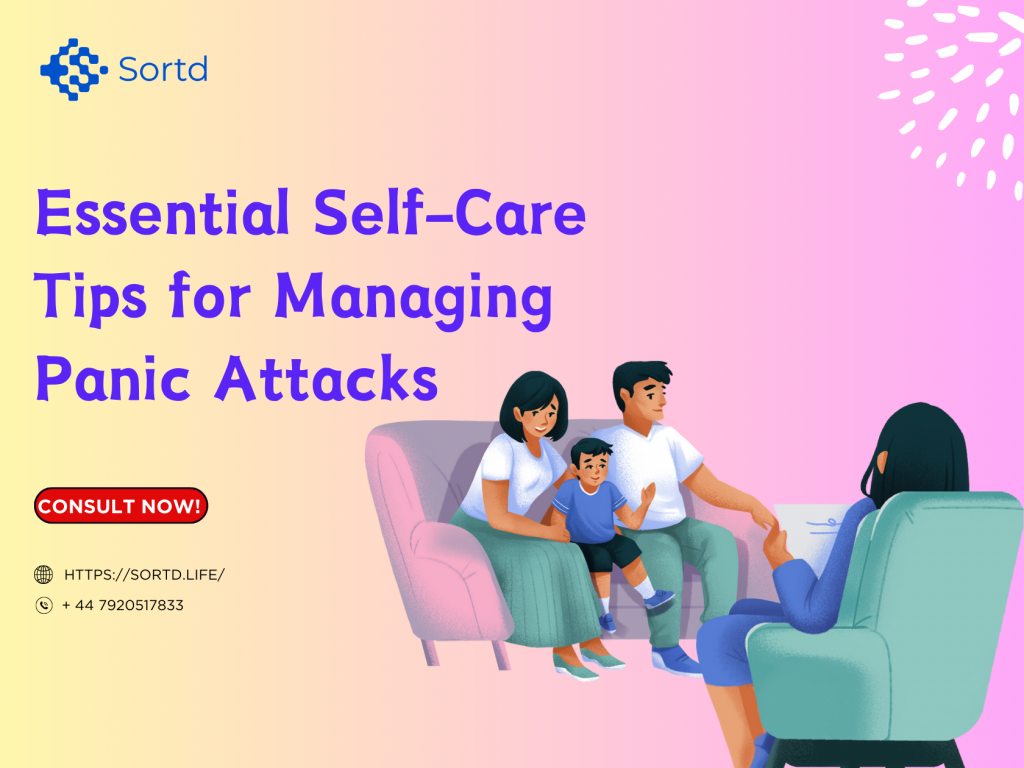
Essential Self-Care Tips for Managing Panic Attacks
Panic attacks can be overwhelming and challenging, but incorporating self-care practices into your routine can significantly contribute to managing and reducing their impact. In this blog post, we’ll explore effective self-care tips tailored to help you navigate and cope with panic attacks, fostering a sense of calm and resilience.
1. Deep Breathing and Grounding Techniques:
Practice deep, intentional breathing to regulate your breath and calm your nervous system. Grounding techniques, such as focusing on your senses or using tactile objects, can help anchor you in the present moment.
2. Create a Comforting Environment:
Designate a safe and soothing space where you can retreat during a panic attack. Personalize it with comforting items, such as blankets, soft lighting, or calming scents, to create an atmosphere of security.
3. Mindful Meditation and Visualization:
Engage in mindfulness meditation to center your thoughts and redirect your focus. Visualization exercises, imagining a serene place or engaging in positive imagery, can help shift your mindset during challenging moments.
4. Establish a Routine:
Structure and routine provide a sense of stability. Establishing a daily routine can create predictability, helping to minimize stressors and reduce the likelihood of triggering panic attacks.
5. Regular Exercise:
Incorporate regular physical activity into your routine. Exercise releases endorphins, the body’s natural mood lifters, promoting a positive mental state and reducing the frequency of panic attacks.
6. Healthy Lifestyle Choices:
Prioritize a balanced diet, sufficient sleep, and hydration. A healthy lifestyle contributes to overall well-being, helping to regulate mood and minimize factors that may contribute to panic attacks. Check out Panic Attacks and their Symptoms
7. Educate Yourself:
Knowledge is empowering. Learn about panic attacks, their triggers, and coping strategies. Understanding the nature of panic attacks can reduce fear and equip you with tools to manage them effectively.
8. Reach Out for Support:
Cultivate a support system of friends, family, or mental health professionals. Share your experiences, and don’t hesitate to seek support during challenging times. Knowing you’re not alone can be incredibly comforting.
9. Practice Self-Compassion:
Be kind to yourself. Understand that experiencing panic attacks does not diminish your strength or resilience. Treat yourself with the same compassion and understanding that you would offer to a friend.
10. Establish a Relaxation Toolkit:
Compile a toolkit of relaxation techniques that work for you. This could include music playlists, calming scents, stress balls, or any other items that bring you comfort and relaxation.
Conclusion:
Incorporating self-care tips into your routine is a proactive and empowering way to manage panic attacks. By developing a personalized self-care toolkit, you can navigate challenging moments with resilience, gradually reducing the impact of panic attacks on your daily life. Connect to get Mental Health Therapy in Harrow
